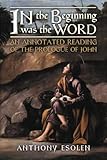The Catholic Thing is a daily stop for me. They usually post two items a day, both of quality and brevity.
Today they have something by Anthony Esolen, worth reading no matter where he is found on the interwebs.
His piece today struck through to my pericardium. It begins:
“And I shall go in unto the altar of God.”
“To God, who gives joy to my youth.”
You know these words, of course, as the beginning of Holy Mass in the Vetus Ordo, from Ps 43.
Esolen continued…
As I grow older, I cherish that verse from the psalm more and more. I imagine what it might feel like to a priest whose knees can hardly bend without trembling, to hear the response, “to God, who gives joy to my youth,” from the voice of a lad such as he himself once was, and perhaps such as he yet aspires to be.
“For unless ye become as little children,” we might say, “ye shall not go in unto the altar of God.” What does the verse mean?
*sigh*
Moreover….
I am growing old, and I feel I need to learn how to pray again, and I will learn it only if I retire into my cell, that is, into the world God has made, or into the silence of a church, or into my memories of people who have gone before me, for whom I thank God.
When Augustine of Hippo was dying and the Vandals were at the gates, he asked that Psalms be written out and tacked up on the wall by his sick bed. He turned his face to the wall and contemplated the Word. For Augustine, every word of the Psalms was Christ speaking, sometimes Christ the Head speaking, sometimes Christ the Body, sometimes Christus Totus. He finally was setting down the heavy sarcina – military gear – of his ministry, accepted as an adult somewhat unwillingly and under moral compulsion. Full circle.
As I read the first part of Esolen’s piece, I wondered if he isn’t slowly but surely assembling a kind of commentary on the ordinary of the Mass. After all, he has a book which EVERY priest should read about the Prologue of the Gospel of John, which is at the end of each Mass. It is enormously enriching.
In the Beginning Was the Word: An Annotated Reading of the Prologue of John



































Pingback: THVRSDAY MID-DAY EDITION | BIG PULPIT
Are you reeeeeeally sure you want to be in Rome in Oct/Nov? Given all of the signs that keep piling up in recent years/months, that might not be a wise decision… just sayin’. {shrug} {wink} LOL. I think we’ll need to pray for YOU and your protection rather than the other way around. {pray} I’ll Zelle you in a bit. I have the Zelle info from last year.
Indeed, gives an entirely new meaning to “he turned his face to the wall.”
Beautiful.
Along the same lines as this post with its themes of aging and calling to mind our own, eventual, passing, I offer this thought to the readership: I’m sure many of us pray regularly for our priests, remembering especially those that baptized us, shriven us, fed us with the Lord’s Body and Blood, etc. I was struck in Adoration this past week with the prompting to pray for the priest who (God willing) will administer the Last Rites to me, for him who will conduct my funeral and bury me some day, and for all the priests who (again, God willing!) will offer Masses for the repose of my soul at the request of my children and loved ones who survive my death. May God grant all of them His grace and peace, and may they know of my gratitude one day when we are all in the Beatific Vision!
It’s an interesting and beautiful verse but it’s peculiar to Catholic bibles. There are two Vulgate choices:
Introibo ad altare tuum ad Deum laetitiae et exultationis meae et confitebor tibi in cithara Deus Deus meus
And I will go up into the altar of God, to my exultant joy, and to You, O God my God, I will give praise upon the harp.
Introibo ad altare Dei ad Deum qui laetificat iuventutem meam confitebor tibi in cithara Deus Deus meus
And I will go in to the altar of God: to God who gives joy to my youth. O God my God, I will give praise upon the harp.
Obviously the latter gives a much more personal account of the source of joy. If you or your readers can shine light on this, I’d be very interested.
First, the Catholic Church determined the books of the Bible. Period.
The concept of “iuventus” in the version in the prayers at the foot of the altar, is from the neotes in the LXX in Ps 43:4.
Moreover, its use liturgically over so long a time constitutes its own theological locus regardless of the variants.
Thank you! I’ll do some more research about it armed with your explanation about the Septuagint. For what it’s with, I much prefer the “Joy to my youth” sense and the depth of thought that arises from it.